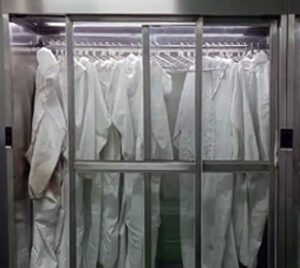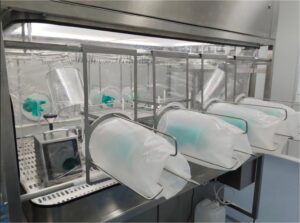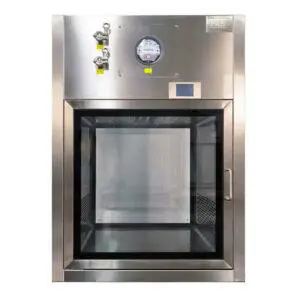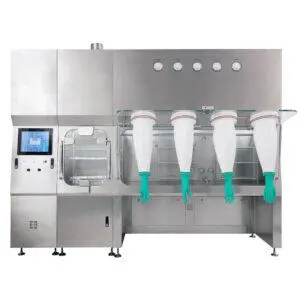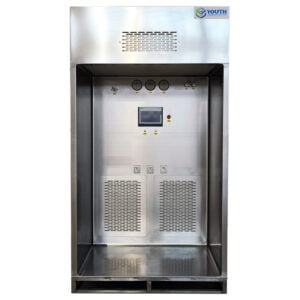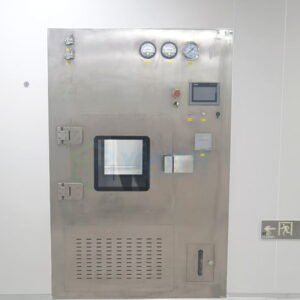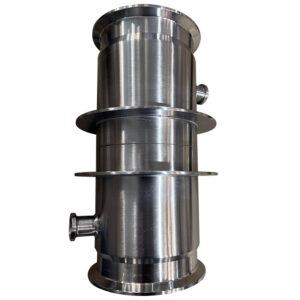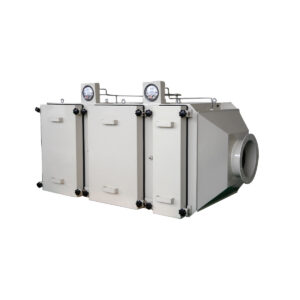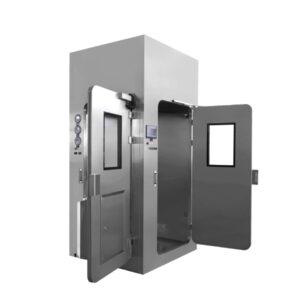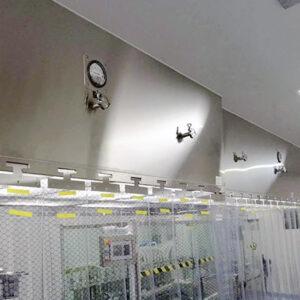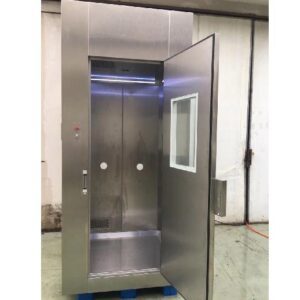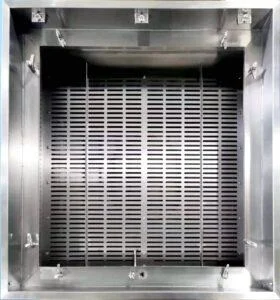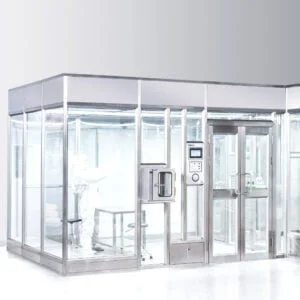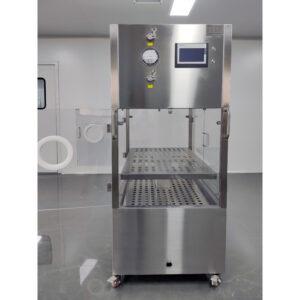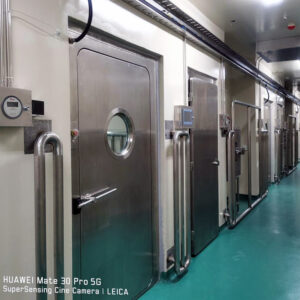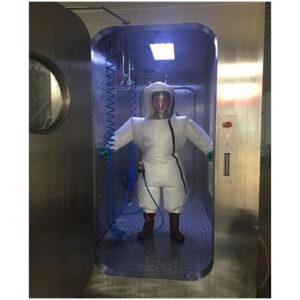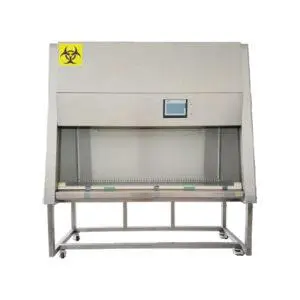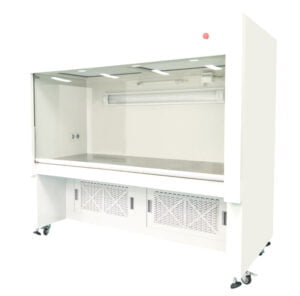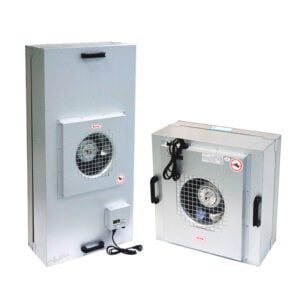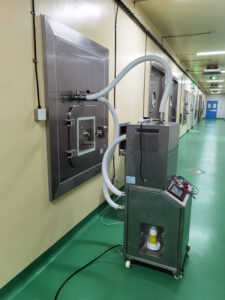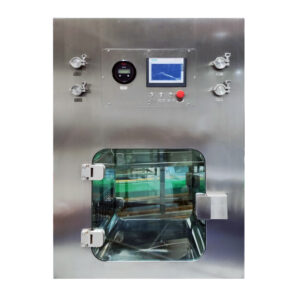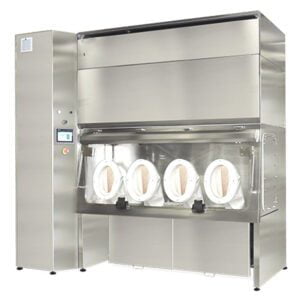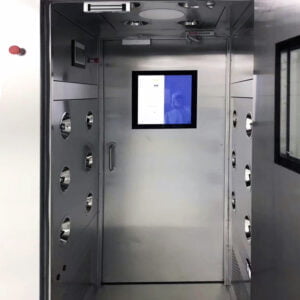In the ever-evolving landscape of pharmaceutical manufacturing, maintaining a sterile environment is paramount. One technology that has revolutionized contamination control in this industry is the Bag In Bag Out (BIBO) system. These innovative systems have become indispensable in ensuring the safety of personnel and products alike, while also streamlining maintenance processes.
BIBO systems offer a range of benefits that address critical challenges in pharmaceutical manufacturing. From enhanced safety measures to improved efficiency in filter changes, these systems have proven their worth in maintaining the highest standards of cleanliness and contamination control. As we delve deeper into the world of BIBO systems, we'll explore their various applications, advantages, and the impact they've had on the pharmaceutical industry.
The pharmaceutical industry has long grappled with the need for stringent contamination control measures. BIBO systems have emerged as a game-changing solution, providing a reliable method for filter changes without compromising the integrity of clean environments. This innovation has not only improved safety standards but also increased operational efficiency in pharmaceutical manufacturing facilities worldwide.
BIBO systems have revolutionized contamination control in pharmaceutical manufacturing by providing a safe and efficient method for filter changes, significantly reducing the risk of exposure to hazardous materials and maintaining the integrity of clean environments.
| Feature | Benefit |
|---|---|
| Containment System | Prevents contamination during filter changes |
| Safety Bags | Protects personnel from exposure to hazardous materials |
| Easy Maintenance | Simplifies filter replacement process |
| Versatility | Applicable in various pharmaceutical settings |
| Compliance | Meets stringent industry regulations |
How do BIBO systems enhance safety in pharmaceutical manufacturing?
Safety is a top priority in pharmaceutical manufacturing, and BIBO systems play a crucial role in this aspect. These systems are designed to protect personnel from exposure to hazardous materials during filter changes, a process that traditionally posed significant risks.
BIBO systems utilize a unique containment mechanism that ensures potentially harmful particles remain isolated during maintenance procedures. This not only safeguards the health of workers but also maintains the integrity of the manufacturing environment.
The enhanced safety provided by BIBO systems extends beyond immediate personnel protection. By minimizing the risk of contamination, these systems contribute to the overall quality and safety of pharmaceutical products, ultimately benefiting end-users and patients.
BIBO systems significantly reduce the risk of exposure to hazardous materials during filter changes, providing a safer working environment for pharmaceutical manufacturing personnel and contributing to the production of higher quality, safer pharmaceutical products.
| Safety Feature | Impact |
|---|---|
| Containment Mechanism | Isolates hazardous particles |
| Protective Bagging | Prevents direct contact with contaminated filters |
| Sealed Housing | Maintains clean room integrity |
| Automated Processes | Minimizes human error |
What role do BIBO systems play in maintaining cleanliness standards?
Maintaining cleanliness standards is critical in pharmaceutical manufacturing, and BIBO systems are at the forefront of this effort. These systems are designed to ensure that the integrity of clean environments is preserved, even during maintenance procedures that traditionally posed contamination risks.
BIBO systems achieve this through their innovative design, which allows for filter changes without breaching the containment barrier. This means that potentially contaminated filters can be removed and replaced without exposing the clean environment to outside pollutants or releasing hazardous materials into the surrounding area.
The ability to maintain cleanliness standards during maintenance procedures has far-reaching implications for pharmaceutical manufacturing. It allows for more frequent filter changes when necessary, ensuring optimal air quality and reducing the risk of product contamination.
BIBO systems play a crucial role in maintaining cleanliness standards in pharmaceutical manufacturing by allowing for filter changes without compromising the integrity of clean environments, thereby ensuring consistent air quality and reducing the risk of product contamination.
| Cleanliness Factor | BIBO System Impact |
|---|---|
| Air Quality | Maintains consistent filtration |
| Contamination Risk | Significantly reduced |
| Maintenance Frequency | Increased without compromising cleanliness |
| Environmental Control | Enhanced during filter changes |
How do BIBO systems improve efficiency in pharmaceutical manufacturing?
Efficiency is a key concern in pharmaceutical manufacturing, and BIBO systems have made significant contributions in this area. These systems streamline the process of filter changes, reducing downtime and increasing overall operational efficiency.
Traditional filter change methods often required shutting down entire sections of a facility, leading to significant production delays. BIBO systems, however, allow for filter changes to be conducted quickly and safely, minimizing disruptions to the manufacturing process.
Moreover, the ease of use of BIBO systems means that maintenance procedures can be carried out more frequently and with less specialized training. This not only ensures optimal system performance but also reduces the likelihood of unexpected breakdowns or contamination events.
BIBO systems enhance efficiency in pharmaceutical manufacturing by streamlining filter change processes, reducing downtime, and allowing for more frequent maintenance without disrupting production, thereby contributing to increased overall operational efficiency.
| Efficiency Factor | BIBO System Advantage |
|---|---|
| Downtime | Significantly reduced |
| Maintenance Speed | Faster filter changes |
| Training Requirements | Simplified procedures |
| System Performance | Consistently optimal |
What are the long-term cost benefits of implementing BIBO systems?
While the initial investment in BIBO systems may seem substantial, the long-term cost benefits for pharmaceutical manufacturers are significant. These systems offer a range of advantages that contribute to cost savings over time.
Firstly, the enhanced safety features of BIBO systems reduce the risk of workplace accidents and contamination events, potentially saving companies substantial amounts in liability and product loss. Additionally, the improved efficiency and reduced downtime translate directly into increased productivity and output.
Furthermore, the ability to maintain cleanliness standards more effectively can lead to fewer rejected batches and higher quality products, ultimately improving a company's bottom line and reputation in the market.
Implementing BIBO systems in pharmaceutical manufacturing facilities offers substantial long-term cost benefits through reduced risk of accidents and contamination events, increased productivity, and improved product quality, ultimately leading to significant savings and enhanced market competitiveness.
| Cost Factor | Long-term Benefit |
|---|---|
| Liability Risk | Reduced potential for workplace accidents |
| Product Quality | Fewer rejected batches |
| Productivity | Increased output due to reduced downtime |
| Reputation | Enhanced market position due to consistent quality |
How do BIBO systems contribute to regulatory compliance in the pharmaceutical industry?
Regulatory compliance is a critical concern in the pharmaceutical industry, and BIBO systems play a crucial role in helping manufacturers meet stringent standards. These systems are designed with regulatory requirements in mind, ensuring that contamination control measures are in line with industry regulations.
BIBO systems provide a documented and validated process for filter changes, which is essential for regulatory audits. The containment features of these systems also help manufacturers comply with occupational health and safety regulations by minimizing worker exposure to hazardous materials.
Moreover, the consistent maintenance of clean environments facilitated by BIBO systems supports compliance with Good Manufacturing Practice (GMP) guidelines, which are fundamental to pharmaceutical production.
BIBO systems significantly contribute to regulatory compliance in the pharmaceutical industry by providing documented and validated processes for contamination control, supporting occupational health and safety standards, and facilitating adherence to Good Manufacturing Practice guidelines.
| Regulatory Aspect | BIBO System Contribution |
|---|---|
| Process Documentation | Provides validated filter change procedures |
| Occupational Safety | Minimizes worker exposure to hazards |
| GMP Compliance | Supports maintenance of clean environments |
| Audit Readiness | Enhances traceability and record-keeping |
What advancements in BIBO technology are shaping the future of pharmaceutical manufacturing?
As with any technology, BIBO systems continue to evolve, with new advancements promising even greater benefits for pharmaceutical manufacturing. These innovations are focused on further improving safety, efficiency, and integration with other systems.
One area of development is the integration of smart technology into BIBO systems. This includes sensors that can monitor filter performance in real-time, predicting when changes are needed and optimizing maintenance schedules. Additionally, advancements in materials science are leading to more durable and effective containment bags and seals.
Another exciting area of innovation is the development of modular BIBO systems that can be easily customized to fit various facility layouts and requirements. This flexibility allows pharmaceutical manufacturers to optimize their contamination control strategies more effectively.
Advancements in BIBO technology, including smart monitoring systems, improved materials, and modular designs, are set to further enhance safety, efficiency, and customization in pharmaceutical manufacturing, paving the way for more effective contamination control strategies.
| Technological Advancement | Potential Impact |
|---|---|
| Smart Monitoring | Optimized maintenance schedules |
| Advanced Materials | Improved durability and effectiveness |
| Modular Designs | Enhanced customization options |
| Integration Capabilities | Seamless incorporation with existing systems |
How are BIBO systems adapting to the changing needs of the pharmaceutical industry?
The pharmaceutical industry is constantly evolving, with new challenges and requirements emerging regularly. BIBO systems are adapting to meet these changing needs, ensuring they remain a vital tool in pharmaceutical manufacturing.
One key area of adaptation is in the handling of increasingly potent and complex pharmaceutical compounds. BIBO systems are being designed with higher containment levels to safely manage these materials during filter changes and maintenance procedures.
Additionally, as the industry moves towards more flexible and modular manufacturing processes, BIBO systems are being developed to be more portable and adaptable. This allows for easier integration into various production setups and facilitates quick changes in manufacturing processes.
BIBO systems are evolving to meet the changing needs of the pharmaceutical industry by incorporating higher containment levels for potent compounds and developing more flexible, portable designs to support modular manufacturing processes.
| Industry Trend | BIBO System Adaptation |
|---|---|
| Potent Compounds | Enhanced containment levels |
| Modular Manufacturing | Increased portability and flexibility |
| Digitalization | Integration with digital monitoring systems |
| Sustainability | Development of eco-friendly materials |
In conclusion, BIBO systems have become an integral part of modern pharmaceutical manufacturing, offering numerous benefits that address critical industry challenges. From enhancing safety and maintaining cleanliness standards to improving efficiency and supporting regulatory compliance, these systems have proven their value time and again.
As we've explored, BIBO systems not only protect personnel and products but also contribute to long-term cost savings and operational efficiency. Their ability to adapt to the changing needs of the pharmaceutical industry ensures their continued relevance and importance.
Looking ahead, advancements in BIBO technology promise even greater benefits, with smart monitoring, improved materials, and modular designs set to further enhance contamination control strategies. As the pharmaceutical industry continues to evolve, BIBO systems will undoubtedly play a crucial role in shaping its future, ensuring the production of safe, high-quality pharmaceuticals for years to come.
For those interested in learning more about BIBO systems and their applications in pharmaceutical manufacturing, [ (YOUTH)[youthfilter.com] ] offers comprehensive information and solutions. Their Bag-In/Bag-Out (BIBO) systems are designed to meet the highest industry standards, providing reliable contamination control for various pharmaceutical applications.
External Resources
HEPA Filter Housings: BIBO Systems – Detailed information on BIBO systems and their applications in various industries, including pharmaceuticals.
Bag In/Bag Out (BIBO) Systems – Comprehensive guide to BIBO systems, their benefits, and applications in contamination control.
BIBO Filter Housing Systems – Technical document detailing the design and functionality of BIBO filter housing systems.
Containment Systems in the Pharmaceutical Industry – Article discussing various containment systems used in pharmaceutical manufacturing, including BIBO systems.
Good Manufacturing Practice (GMP) Guidelines – World Health Organization's resource on GMP guidelines, which BIBO systems help manufacturers comply with.
Related Contents:
- Nuclear Safety Revolution: BIBO Systems Enhance Protection
- Unveiling the Power of Bag-In-Bag-Out Systems
- Introduction
- Bag-In/Bag-Out (BIBO) Systems: Operation and Maintenance Guide
- Bag-In-Bag-Out Systems: Ensuring Safe Contamination Control
- Maintaining Purity: BIBO’s Critical Role in Cleanrooms
- Biosafety Airtight Doors: Safeguarding Pharmaceutical Manufacturing
- Biosafety Passboxes: Positive vs Negative Pressure
- Revolutionizing Cleanroom Sterilization: VHP Distribution Systems


